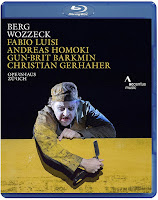the traveler's resource guide to festivals & films
a FestivalTravelNetwork.com site
part of Insider Media llc.
Film and the Arts
The "Four Seasons" in Fall
- Details
- Parent Category: Film and the Arts
- Category: Reviews
- Published on Thursday, 27 October 2016 14:07
- Written by Jack Angstreich

Thomas Crawford, conductor of American Cassical Orchestra. Photo by William Neumann Photography.
The enjoyable second concert this season by the American Classical Orchestra under the direction of Thomas Crawford—given on the evening of Tuesday, October 25th, at the marvelous Alice Tully Hall—was devoted to Baroque concerti for string ensembles.
The program opened with the excellent, rarely performed Concerto Grosso in D minor, Op. 5, No. 12, by Francesco Geminiani, a recomposition of a work by the great Arcangelo Corelli, a theme and variations of the famous melody "La follia".
This was followed by the wonderful "Autumn" concerto of Antonio Vivaldi's magnificent The Four Seasons, the four parts of which Crawford, in his engaging remarks preceding the concert, said he had only performed once before and described as "the most famous Baroque piece of all" and as more "ingenious" and variegated than other concertos by the composer.
The musicians then presented the appealing, "virtually unknown" Concerto a Quattro, Op. 7, by the obscure and enigmatic Giovanni Albicastro, which Crawford averred was not a great piece but "a little bonbon against the Vivaldi and [Georg Friedrich] Händel" in the program, adding that not every work "can be a masterpiece" but assuring that this was nonetheless beautiful, calling attention to the oboe solo. He said that the score has been out of print for fifty years and that he had to copy it from the Bobst Library.
The first half of the program concluded with the lovely "Winter" concerto from The Four Seasons while the even better second half opened with Handel's superb Concerto Grosso, Opus 3, No. 2, which Crawford noted is one of his "all-time favorites". He asserted that the composer was "able to take up the spirit of another country" and that the work "sounds more English than German", only sounding particularly German in "one lousy fugue". He also said that "the real reason" he programmed this piece was the adagio oboe solo. He noted with respect to the minuet that it's "charming and beautifully written" and that Händel "wrote some of the finest minuets of the era".
On the delightful "Spring" concerto that ensued, Crawford amusingly reported that "the most annoying thing in all Baroque music" is "the dog barking in the viola" in the middle movement. On the glorious "Summer" concerto that concluded the evening, he claimed that it "begins in the weakest way of all them" but is the "strongest" of all the concertos in the set "from a compositional point of view", adding that "if Vivaldi is good at anything, it's at repeating things, sometimes too much" and that the final movement of the work is "absolutely thrilling". It was a splendid ending to a worthwhile program.
October '16 Digital Week IV
- Details
- Parent Category: Film and the Arts
- Category: Reviews
- Published on Wednesday, 26 October 2016 03:12
- Written by Kevin Filipski
The Harmonie Ensemble/New York offers lively performances of several Gershwin favorites: the sprightly Of Thee I Sing Overture and 3 Preludes, fizzy An American in Paris and percolating Concerto in F, a towering piano and orchestra work heard far less often than Rhapsody in Blue.
Pianist Lincoln Mayorga plays the challenging solo part in the concerto with exceptional ease; leading the ensemble is Steven Richman, who puts himself and his crack band in the front rank of current Gershwin interpreters.
Broadway Review—Mary-Louise Parker in “Heisenberg”
- Details
- Parent Category: Film and the Arts
- Category: Reviews
- Published on Friday, 21 October 2016 22:29
- Written by Kevin Filipski
 |
| Denis Arendt and Mary-Louise Parker in Heisenberg (photo: Joan Marcus) |
October '16 Digital Week III
- Details
- Parent Category: Film and the Arts
- Category: Reviews
- Published on Wednesday, 19 October 2016 13:27
- Written by Kevin Filipski
(Opus Arte)
More Articles...
Newsletter Sign Up





























